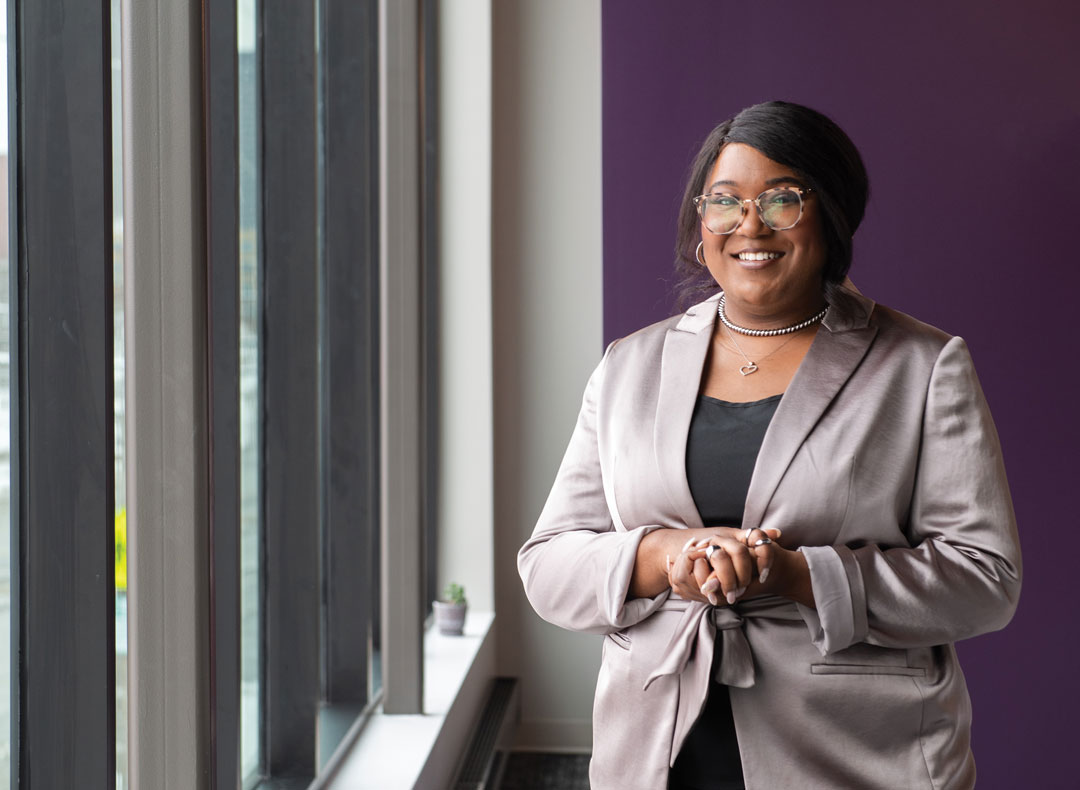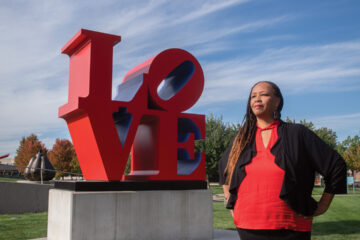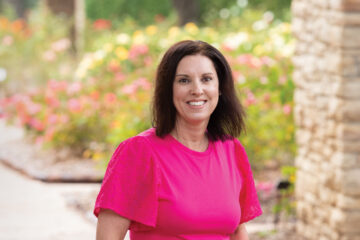Q&A with Jerrica Marshall: Issues affecting Black women in Iowa

I recently interviewed Jerrica Marshall, executive director of the Directors Council, for a Closer Look feature in the Business Record. The Des Moines-based organization she leads strives to address inequities affecting Black community members in Polk County. In a previous role, she noticed the Des Moines Downtown Farmers Market vendors did not mirror the community, so she worked with others to form a business incubator for Black-women-owned businesses.
I asked her a few questions for Fearless about what she learned in those efforts and other issues predominantly affecting Black women in Iowa.
The following Q&A has been edited and condensed for clarity.
What barriers do you see for Black women who want to start a business?
I think a lot of it is just learning all the pieces that you need to start the business. It’s the business side of business. The Directors Council has sponsored the Financial Empowerment Center at the Evelyn K. Davis Center because we want to make sure that things like small business boot camps, nonprofit leader camps are available. Once that piece is done, it’s access. If you’ve looked around at the Des Moines Downtown Farmers Market, it looks like more of a mixed crowd than you’ve probably seen before.
What other issues that predominantly affect Black women do you think the state needs to address?
Maternal health. The list could go on, but maternal health is probably the No. 1 for me. Seeing the mortality rate for Black women is alarming – and it’s something that we need to continue to fight to change. Recently we did a community conversation with Molina Healthcare of Iowa, one of our Medicare/Medicaid providers here in town. … A lot of different medical providers were there and really kind of highlighted some of that Black mortality for us when it comes to reproductive health. Really, it’s just about not being heard. A lot of it is not being understood, not being respected for the pain that they’re in or being told that it’s not something that’s a real medical emergency or necessity that we need to address. It’s indicative of a larger problem for Black women because it’s about not being heard. That’s a bigger issue in itself.
When I had further conversations with Molina, they have taken some initiatives to add on a service regarding doulas. The Iowa Black Doula Collective, and many others, have shown this is a need. But adding that as an insurance provider – that’s monumental. That can change things. We know having doulas can fix this, but doulas cost money. If you’re already someone that is having issues financially, how do I also tack on a service that is needed for my health?
What would be your advice on a solution to not being heard?
It’s so difficult because some of it is making sure that you have a health care provider that is listening to you. But that in itself is a roadblock because not everybody feels like they have the options, or maybe they do have options, but they don’t have the time to go through and interview doctors until they find the one that fits them. But that may be what it requires. For some people who work a regular 9-to-5 job, you’d say, “I’m taking lunch and I go see this doctor today, tomorrow I’m gonna go see this doctor.” But that’s not always the scenario for everyone. That’s a privilege in itself. My biggest push would be to advocate for yourself. Don’t be afraid to say what you’re thinking. Don’t be afraid to be loud about it. We want to make sure that people are advocating for themselves, no matter what that looks like.
What advice would you have for other women who want to be leaders?
The advice would be to not let anyone deter you from that dream, hope or goal. You know, there are some that will say, “Are you sure you want to go? Are you sure this is your next move?” They’ll build doubt in your mind of what you’re capable of or what you can accomplish. I’ve learned from many strong women board members behind me that you just can’t go into it with that fear. You have to be fearless. You have to go into it sure about yourself – sure about what you can do, what you can bring to the table and to be OK with saying this isn’t my strong suit, but I know someone who has that and pulling those people on your team. That’s going to be the biggest thing is to make sure that you go into it knowing exactly who you are, what you can bring and what you can accomplish, and then bringing all those people that can help you strengthen even more.


